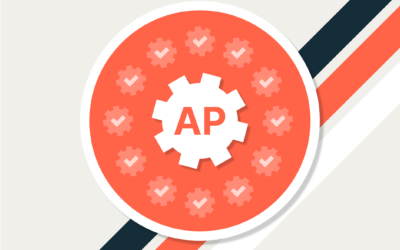Few finance leaders have had to pivot as quickly and dramatically as Kelly Steckelberg, CFO at Zoom. In March of 2020, the business world was forced to transition to remote workforces and became highly reliant on Zoom’s video platform. At a recent Path to Becoming a CFO talk with Jeff Epstein, Partner at Bessemer Venture Partners, Kelly talked about how her team successfully navigated being at the epicenter of a black-swan event, and how her career to date prepared her to meet the challenge.
To give a sense of the scope of the extraordinary changes the company faced, in December 2019 there were approximately 10 million daily Zoom meetings. By April 2020, that number grew to a staggering 300 million. But Zoom’s employee headcount barely increased. “It was an amazing period of time where every Zoom employee just rallied and did everything they could. It didn’t matter if it was morning, or evening, or the weekend, we were all doing everything we could to support customers and keep people connected.” That included offering Zoom to K-to-12 schools in need, an initiative Kelly is particularly proud of.
The financial response.
What added to the challenge from a finance perspective was that Zoom’s fiscal year ends in January.
“We were just starting our fiscal year and basically, six weeks into it, the budget was out the window because it didn’t make any sense anymore.”
Leadership quickly implemented some major operational changes in response. An important one was introducing more frequent check-ins to keep capital flowing to the right places. Traditionally, the company reviewed resource requests on a quarterly basis. “Very quickly, as a finance team, we realized that we had to pivot, so we implemented a process where we were meeting with our business partners every week, sometimes twice a week, so they could come to us and request resources.”
Another key consideration was to add necessary resources in a sustainable way. The company recognized the need to invest in sales people and engineers for the long term, but, Kelly said, “Where we wanted to be thoughtful was with regards to things that could be addressed later with automation. We didn’t want to over-commit to resources in those cases.”
Adding 1,000s of servers a day.
Jeff pointed to Zoom’s responsiveness as evidence that technology truly is scalable, and Kelly explained that Zoom’s business partners were also vital to that success. “Previously, 90% of our live traffic ran through servers in our own data centers. And now, all of a sudden, because of supply chain constraints and the huge increase in demand, we could not keep up with that way of provisioning our customers. So we turned to our partners, who were amazing and responded very quickly, sometimes adding thousands of servers in a day to keep up with our need for capacity.”
The road to a history-making position.
Although nobody could have anticipated what was in store when she started at Zoom, Kelly’s wide range of finance experience helped prepare her for what lay ahead. After obtaining an MA in accounting, she worked in tax and audit at KPMG. “For me, public accounting was a really great start to my career because of the exposure that I got to the wide range of different industries.”
She went on to hold roles at PeopleSoft, Epiphany, WebEx, and Cisco. Just prior to joining Zoom, she was at online dating platform Zoosk, where she became CEO after stints as CFO and COO. The experience she gained as CEO gave her a fresh perspective on the CFO role. “I became a much better CFO because of it, and really learned how marketing, product, and engineering all work together. That I really loved.” She advised prospective CFOs to always remember the broad scope of the CEO’s concerns.
The move to Zoom came next. Kelly had worked with Zoom’s CEO, Eric Yuan, at WebEx, and she wanted to transition to a role as a public company CFO. Although Zoom was a private company at the time, they went public shortly after she joined. The relationship between Kelly and Eric reinforced her belief that “the longer your career, the more you realize how important it is to cultivate those relationships.”
Managing through change.
Kelly singled out tax experience and the international experience she gained at PeopleSoft as particularly valuable steps on her career path. She’s also thankful to have both accounting and operational experience. When an audience member asked if she felt it was necessary to have a strong accounting background to become a CFO, she pointed to the importance of surrounding yourself with people with the right skills. If you’re short on accounting experience, she explained, “you want to make sure you hire a really great Chief Accounting Officer who is very technically astute.”
“I think another important aspect is making sure that you and your CEO or your controller have similar viewpoints on the approach you’re going to take as a company — how conservative or moderately conservative or aggressive you are on accounting standards.”
The importance of building strong teams extends to her philosophy on hiring and nurturing career growth. Kelly emphasized that it’s important to realize new skills can be acquired within your current company, instead of looking elsewhere to advance. “If you’re a valued employee, the best way for you to get experience is with your current company.” At Zoom, she makes a conscious effort to give her team cross-functional experience when they express an interest.
Before the pandemic, Zoom focused on hiring from within, but as the company has grown, they’ve had to look outward more often. Kelly’s top piece of hiring advice is simple: Trust your instincts. “Don’t ignore little responses that don’t sit right with you. They probably could be indicative of how a person works and what’s important to them.” She advises not to rush, but to take the time to find the right person. And don’t be afraid to hire someone smarter than you. “They will ultimately make you and your team better.”
The future of Zoom.
As the business world starts to transition to more in-office or hybrid working arrangements, Kelly says Zoom is keeping pace. The company has several strategies in place to make hybrid meetings a better experience for all. “Companies still want flexibility, and they want the ability to choose the tool that works best for them and their approach.”
That philosophy fits with what Kelly said was the best piece of career advice she’s received:
“Be really thoughtful about the problems you’re trying to solve. We all have so many experiences to draw on and what you have to do is make sure that, no matter what environment you’re in, you’re adapting your experience for the here and now.”
To learn more about how she has adapted to change throughout her career, watch the complete Kelly Steckelberg Path to Becoming a CFO talk.
 Jira Integration – Streamline Your Workflows
Jira Integration – Streamline Your Workflows  Ironclad Integration – Simplify Legal Operations
Ironclad Integration – Simplify Legal Operations  Asana
Asana 




